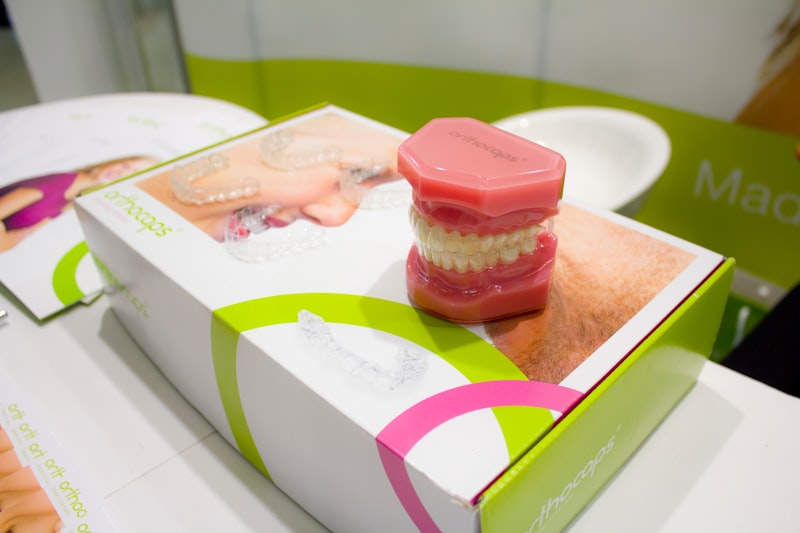Have you heard about the dental superhero called Xylitol? It might sound like something from a science fiction movie, but it’s actually a natural sweetener with amazing benefits for your teeth. Xylitol is not only sweet but also works wonders in preventing tooth decay and promoting oral health.
Imagine Xylitol as a shield against cavities, standing guard over your pearly whites. Unlike sugar, which bacteria in your mouth love to feast on, Xylitol doesn’t give them the same pleasure. Instead, it disrupts their ability to stick to your teeth and form those harmful acids that lead to decay. Think of it as sending those bacteria on an unscheduled vacation, far away from your enamel.
Using Xylitol regularly can be like giving your teeth a daily spa treatment. It helps to remineralize your enamel, making it stronger and more resistant to acid attacks. It’s like providing your teeth with a sturdy coat of armor, ready to defend against the sugar invaders lurking in your favorite treats.

But that’s not all – Xylitol also stimulates saliva production, which plays a crucial role in washing away food particles and neutralizing acids in your mouth. It’s like having a personal cleansing crew that keeps your mouth fresh and clean throughout the day.
So, next time you reach for a sweet treat, consider one with Xylitol. Your teeth will thank you for it. From fighting cavities to strengthening enamel and promoting overall oral hygiene, Xylitol is indeed a dental ally worth embracing. Embrace the sweet side of dental care and let Xylitol be your smile’s best friend.
Sweet Protection: How Xylitol Enhances Dental Health
How does it work its magic? Unlike sugar, which fuels harmful bacteria in your mouth, xylitol doesn’t ferment and create acids that erode enamel. Instead, it disrupts the growth of these bacteria, reducing their ability to stick to teeth and form plaque. This makes xylitol a powerful ally in the fight against cavities and gum disease.
But that’s not all. Xylitol promotes saliva production, which naturally cleanses the mouth and neutralizes acids. This helps maintain a balanced pH level and creates an environment where harmful bacteria struggle to thrive. As a result, regular use of xylitol can significantly decrease the risk of dental problems over time.
Incorporating xylitol into your daily routine is easy. It’s available in various forms like gums, mints, and toothpaste. Chewing xylitol gum after meals can help stimulate saliva flow and reduce plaque buildup. Using xylitol toothpaste ensures that you get its protective benefits during your daily oral care routine.
What about its sweetness? Xylitol provides a satisfying sweetness without causing spikes in blood sugar levels, making it a preferred choice for those managing diabetes or looking to cut down on sugar intake. Its natural origin and dental benefits make it a standout ingredient in oral care products and a healthier alternative to traditional sweeteners.
Xylitol: The Natural Sweetener Boosting Your Dental Care
Looking for a sweet treat that’s good for your teeth? Enter xylitol – a natural sweetener that not only satisfies your sweet tooth but also enhances your dental care routine. Derived from plants like birch trees and corn cobs, xylitol is known for its ability to mimic the sweetness of sugar without causing cavities. Here’s how it works wonders for your dental health:
Xylitol doesn’t just taste sweet; it actively fights against tooth decay. Unlike sugar, which bacteria in your mouth feast on and produce harmful acids, xylitol is not fermentable by oral bacteria. This means it helps reduce the levels of decay-causing bacteria in the mouth, lowering the risk of cavities and plaque buildup.
Chewing gum or consuming products sweetened with xylitol stimulates saliva production. Saliva plays a crucial role in neutralizing acids in the mouth and remineralizing enamel, thereby strengthening your teeth and protecting them against erosion.
Regular consumption of xylitol has been shown to significantly decrease the incidence of cavities. Its unique properties disrupt the growth of Streptococcus mutans, the main bacteria responsible for causing tooth decay. By creating an unfavorable environment for these bacteria, xylitol helps maintain a healthier balance in your oral microbiome.
Beyond its dental benefits, xylitol is also known for its ability to freshen breath. By reducing bacteria and acidity in the mouth, it helps combat bad breath effectively. This makes it a preferred ingredient in many chewing gums, mints, and oral care products aimed at promoting fresh breath throughout the day.
Incorporating xylitol into your daily routine is simple. You can find it in various forms such as chewing gum, candies, toothpaste, and mouth rinses. Whether you prefer a quick refreshment or a comprehensive oral care product, there’s a xylitol-based option to suit your needs.
Exploring Xylitol: A Sweet Solution to Dental Decay
Xylitol is derived from natural sources like birch bark or corn cobs, making it a popular choice for those seeking natural sweeteners. What sets xylitol apart from regular sugar is its unique ability to fight bacteria in the mouth. You see, when we eat, harmful bacteria in our mouths feast on sugars and produce acids that erode tooth enamel, leading to cavities. Xylitol, on the other hand, disrupts this process by not only being non-fermentable but also inhibiting the growth of these bacteria. This means fewer acids attacking your teeth and a lower risk of decay over time.
But that’s not all—xylitol has additional oral health benefits. It can increase saliva production, which helps remineralize teeth and neutralize acids. This natural sweetener also doesn’t spike blood sugar levels as much as regular sugar does, making it a preferred choice for those managing diabetes or looking to reduce sugar intake.
Incorporating xylitol into your daily routine is easier than you think. It’s commonly found in chewing gums, toothpaste, and even certain candies. Chewing xylitol gum after meals can help stimulate saliva flow and reduce plaque buildup. Some studies suggest that regular use of xylitol products may even lead to a decrease in tooth decay rates over time.

So, whether you’re looking to satisfy your sweet cravings guilt-free or actively protect your pearly whites, xylitol offers a sweet solution to dental decay. It’s nature’s way of saying you can have your cake (or candy) and eat it too—minus the dental worries.
Beyond Sugar: How Xylitol Revolutionizes Oral Hygiene
Have you ever imagined a sweetener that not only satisfies your taste buds but also benefits your teeth? Enter xylitol, a natural sugar alcohol found in many fruits and vegetables, known for its incredible dental benefits. Beyond its sweet taste, xylitol has revolutionized oral hygiene in remarkable ways.
Xylitol stands out from traditional sugars because it doesn’t ferment in the mouth like sucrose or glucose. This means it doesn’t contribute to tooth decay or cavities. In fact, xylitol has been shown to actively combat dental caries by reducing the levels of decay-causing bacteria in the mouth. By promoting a neutral pH environment and inhibiting bacterial growth, xylitol helps maintain a healthy oral ecosystem.
Studies have also highlighted xylitol’s ability to stimulate saliva production. Saliva plays a crucial role in washing away food particles and neutralizing acids produced by bacteria. Increased saliva flow aids in remineralizing tooth enamel and preventing the formation of plaque. This dual action of reducing bacteria and enhancing saliva production makes xylitol a potent ally in the fight against tooth decay.
Unlike artificial sweeteners, xylitol is a natural sugar substitute that doesn’t have a bitter aftertaste. Its sweetness is comparable to sucrose, making it a popular choice in oral care products such as toothpaste, mouthwash, and chewing gum. Regular use of xylitol products not only freshens breath but also helps maintain optimal oral health.
Xylitol isn’t just another sweetener – it’s a game-changer for oral hygiene. Its natural origin, combined with its ability to combat tooth decay and promote saliva production, sets it apart as a superior choice for dental care. Whether you’re looking to improve your dental routine or simply enjoy a sweet treat without compromising your teeth, xylitol offers a sweet solution with lasting benefits.
This article highlights the benefits of xylitol in a conversational tone, emphasizing its impact on oral hygiene and engaging the reader with its unique properties.
Xylitol Uncovered: The Secret Weapon Against Cavities
Ever wondered if there’s a sweet treat that could actually fight cavities? Enter xylitol, a natural sugar substitute with a secret weapon reputation against dental decay. Found in many sugar-free gums, candies, and oral care products, xylitol isn’t just about taste—it’s about dental health.
So, what makes xylitol special? Unlike regular sugar, xylitol doesn’t just feed the bacteria in your mouth; it actually helps to starve them. Bacteria like Streptococcus mutans, notorious for causing cavities, can’t utilize xylitol for energy. This means fewer bacteria producing harmful acids that erode tooth enamel.
Using xylitol is simple. Whether you chew gum after meals or use xylitol-sweetened toothpaste and mouthwash, incorporating it into your daily routine can significantly reduce plaque buildup and lower your risk of developing cavities. Its sweetness without the harmful effects of sugar makes it a favorite among dentists and health-conscious individuals alike.
But that’s not all—xylitol’s benefits extend beyond dental care. It has a lower glycemic index than sugar, making it a suitable option for those managing diabetes. Its ability to improve oral health while satisfying your sweet tooth makes it a win-win for many.
Imagine a world where a sweet indulgence like xylitol not only satisfies your cravings but also actively protects your teeth. It’s like having your cake and eating it too—minus the guilt and with added dental benefits.
Next time you reach for a piece of gum or a sugar substitute, consider xylitol. It’s more than just a sugar alternative; it’s a secret weapon in the fight against cavities, keeping your smile healthy and bright. So, why settle for ordinary sweets when you can choose xylitol and indulge intelligently?
Frequently Asked Questions
Is xylitol effective in preventing cavities?
Xylitol can effectively prevent cavities when used in appropriate doses. It inhibits the growth of Streptococcus mutans bacteria, reducing acid production and promoting remineralization of tooth enamel.
What are the dental benefits of xylitol?
Discover the dental benefits of xylitol, a natural sweetener known to reduce tooth decay and promote oral health. Learn how xylitol inhibits harmful bacteria, prevents plaque formation, and supports remineralization of tooth enamel.
Are there any side effects of using xylitol for dental care?
Discover potential side effects of xylitol when used for dental care in this concise FAQ. Learn about possible impacts on oral health and daily use recommendations.
How does xylitol contribute to oral health?
Learn how xylitol contributes to oral health by reducing cavity-causing bacteria, neutralizing pH levels in the mouth, and promoting saliva production, which aids in remineralizing tooth enamel.
How should xylitol be used to maximize dental benefits?
Learn how to maximize dental benefits with xylitol by incorporating it into your daily oral care routine. Discover effective usage tips and its role in reducing cavities and promoting oral health.


